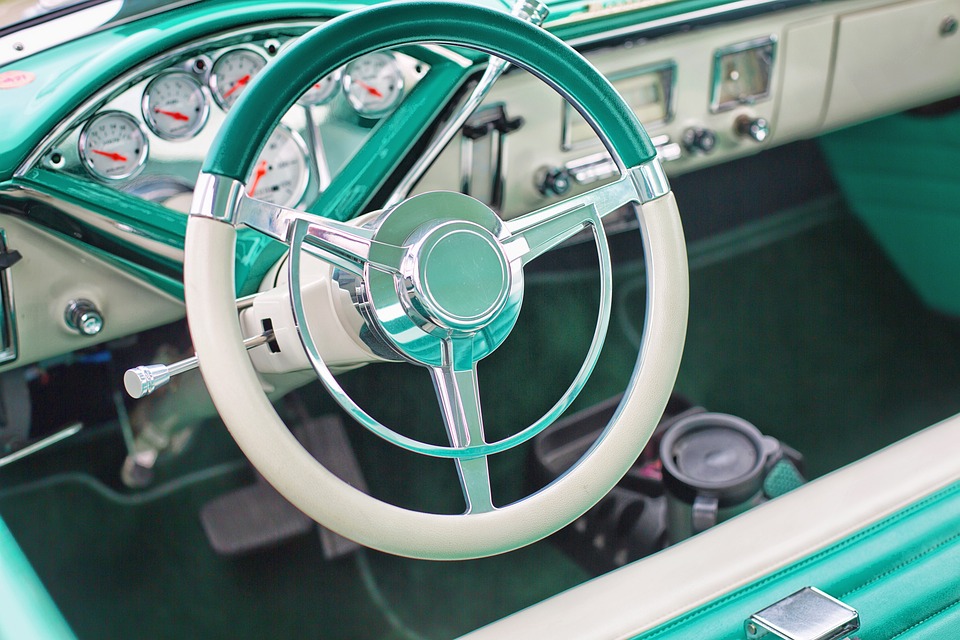Are you confused about the difference between 4L60, 4L60E, 4L80E, and 4L80? Don’t worry, you’re not alone. In this article, I will guide you through the differences and similarities between these popular car transmissions, so you can make an informed decision when it comes to maintaining or upgrading your vehicle. I will provide you with all the information you need to know to understand the differences, advantages, and disadvantages of each transmission, so you can choose the one that best fits your needs.
With over 10 years of experience in the automotive industry since 2013, I have gained valuable knowledge and expertise in the field of car transmissions. I have seen and worked with various types of transmissions, including the 4L60, 4L60E, 4L80E, and 4L80. Through my experience, I have developed a deep understanding of how these transmissions work and the differences between them. I am here to share my insights and help you navigate through the complexities of choosing the right transmission for your vehicle.
4L60 Vs 4L60E Vs 4L80E Vs 4L80
Introduction
When it comes to choosing the right transmission for your vehicle, the options can be overwhelming. The 4L60, 4L60E, 4L80, and 4L80E are all popular choices, but how do you know which one is the best for your needs? In this comprehensive comparison guide, we will break down the differences between these four transmissions to help you make an informed decision.
4L60
The 4L60 is a four-speed automatic transmission that was first introduced by General Motors in the early 1990s. It is a reliable and durable transmission that is commonly found in a wide range of GM vehicles. The 4L60 is known for its smooth shifting and solid performance, making it a popular choice for both everyday driving and performance applications.
The 4L60 features a lock-up torque converter and overdrive gear, which helps to improve fuel efficiency and reduce engine wear. However, one of the drawbacks of the 4L60 is its relatively low torque capacity compared to some other transmissions on the market.
4L60E
The 4L60E is an updated version of the 4L60 that was introduced in the mid-1990s. The “E” in 4L60E stands for electronic, as this transmission features electronic controls instead of the hydraulic controls found in the original 4L60. This allows for more precise shifting and improved overall performance.
The 4L60E also has a higher torque capacity than the 4L60, making it a better choice for vehicles with higher horsepower or towing capabilities. Overall, the 4L60E is a popular choice for both daily drivers and performance enthusiasts looking for a reliable and efficient transmission.
4L80
The 4L80 is a heavy-duty four-speed automatic transmission that was designed for use in larger, more powerful vehicles. It is known for its robust construction and high torque capacity, making it ideal for heavy-duty applications such as towing and hauling. The 4L80 is a popular choice for trucks and SUVs that require a transmission that can handle significant loads.
One of the main drawbacks of the 4L80 is its weight and size, which can be a limiting factor in some vehicles. However, if you need a transmission that can handle heavy loads and provide reliable performance, the 4L80 is an excellent choice.
4L80E
The 4L80E is the electronic version of the 4L80, offering the same heavy-duty construction and high torque capacity with the added benefit of electronic controls. This allows for smoother shifting and improved performance, particularly in heavy-duty applications.
The 4L80E is a popular choice for vehicles that require a transmission with the durability of the 4L80 but the precision and control of electronic shifting. While the 4L80E may be overkill for some applications, it is an excellent choice for vehicles that need a transmission that can handle extreme conditions.
Conclusion
In conclusion, the 4L60, 4L60E, 4L80, and 4L80E are all excellent choices for a wide range of applications. The best transmission for you will depend on your specific needs and preferences, so take the time to consider what is most important to you in a transmission.
With over 10 years of experience in the trucking industry, TruckingCareers.org is here to help you make an informed decision when it comes to choosing the right transmission for your vehicle. Contact us today to learn more about our services and how we can help you find the perfect fit for your trucking needs.
FAQs on 4L60 Vs 4L60E Vs 4L80E Vs 4L80
Q: What is the difference between 4L60, 4L60E, 4L80E, and 4L80?
A: The main difference lies in their design and functionality, with the ‘E’ indicating electronic controls.
Q: Are these transmissions compatible with the same vehicles?
A: They may be used in similar vehicles, but compatibility varies depending on the vehicle’s make and model.
Q: Which transmission offers better performance?
A: The 4L80E and 4L80 typically offer increased durability and higher torque capacity compared to the 4L60 and 4L60E.
Q: Can I upgrade from a 4L60 to a 4L80?
A: It is possible, but may require additional modifications and components to ensure proper installation and compatibility.
Q: Are these transmissions easy to maintain?
A: Regular maintenance and servicing are essential to ensure optimal performance and longevity of these transmissions.




